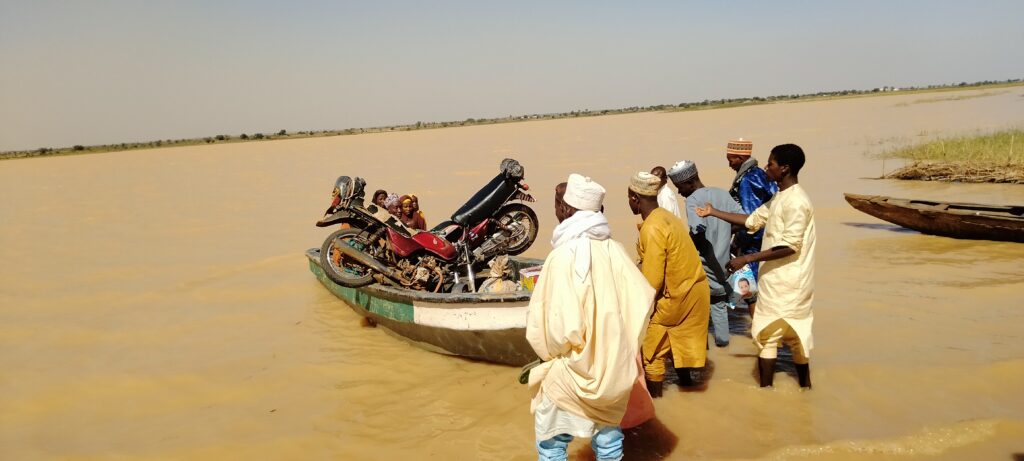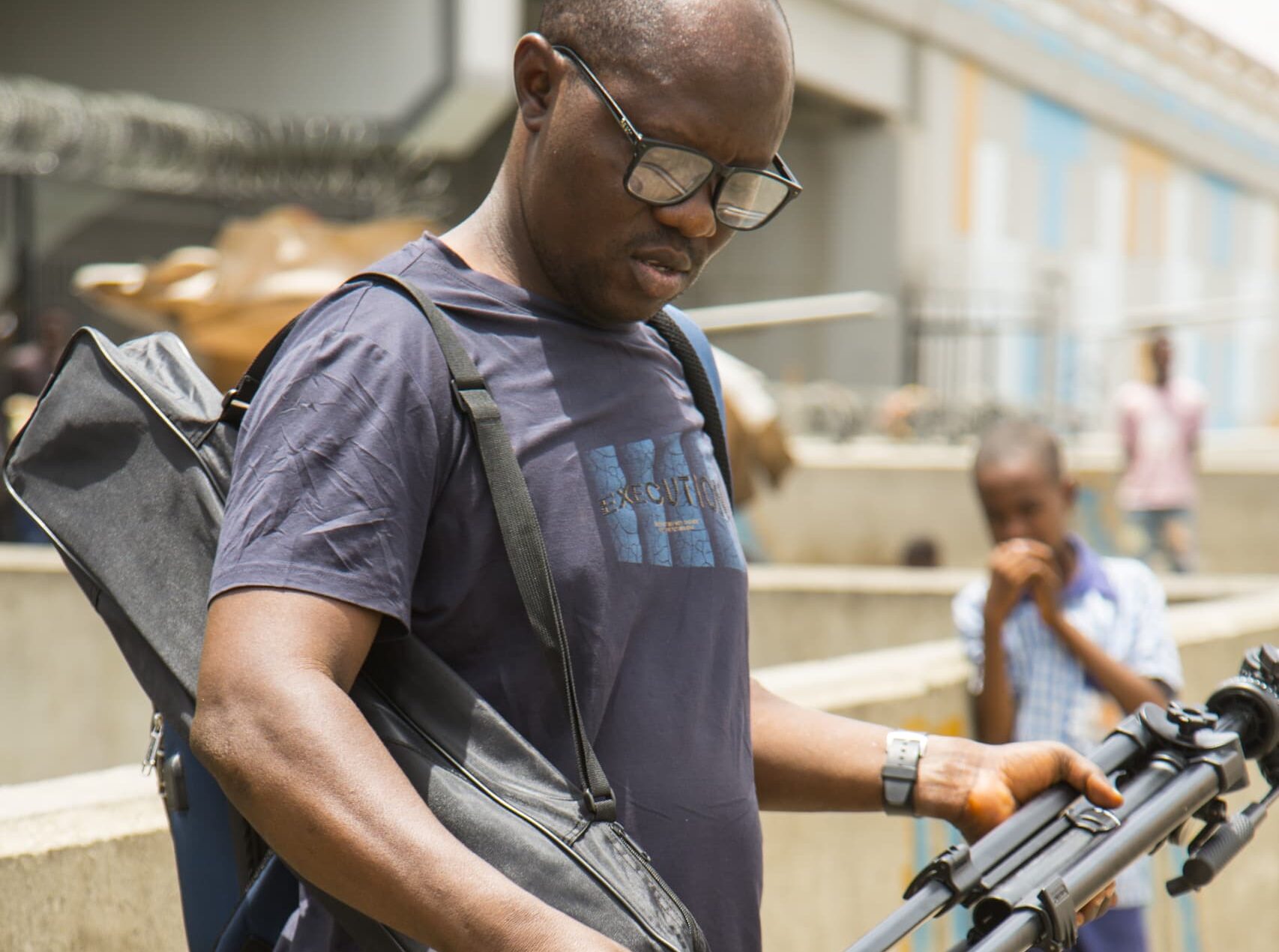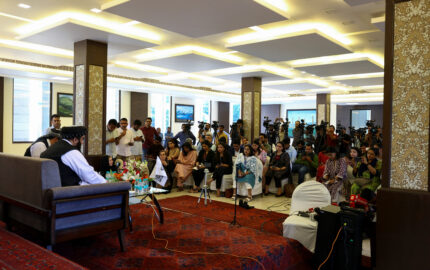In 2018, while still a post-graduate student at the University of Nigeria, Nsukka, I got a call that would change how I viewed journalism. A journalist who had reported for top global media outlets needed help on a project.
They were looking for survivors of the Nigerian-Biafran civil war who must have been at least teenagers when the war broke out in 1967. The goal of the project was to preserve their stories before they disappeared with a dying generation.
I agreed to serve as the journalist's fixer. For days, I did everything: tracked down elderly survivors in Nsukka and Aba in southeast Nigeria, scheduled interviews, arranged transportation, booked hotels, and persuaded families to make sure they were available when we arrived.
In the course of the interviews, I translated in real time when any interviewee spoke Igbo, the local language spoken in that region. I soothed tensions and kept the assignment moving.
For all this, I was paid 15,000 Naira per day (about $40 at the time on the parallel market). My name never appeared when the work was published.
At the time, I barely understood what “fixing” really was. I thought I was just helping. Looking back, I realize I carried the risks, and did the groundwork, while remaining invisible. Sadly, that experience is not unique. It is how the system usually works.
Across Africa, and much of the world, international reporting depends on fixers, who are mostly local journalists, and guides, who bring knowledge of language, culture, and context that outsiders cannot. They open doors, navigate risks, and sometimes bear the brunt of backlash. Yet they are often underpaid, uncredited, and unprotected.
I had a chat with Francis Kokutse, a veteran Ghanaian journalist who has worked as a fixer for over three decades. Kokutse told me that the role is one that is not properly defined. If he is working for an outlet he is affiliated with, for example, he might be listed as a contributor, but otherwise recognition is inconsistent. Payment varies wildly. Some outlets follow United Nations per diem pay rates, while others do not.
In Namibia, Vitalo Angula, who has worked as a fixer for outlets including the BBC and Voice of America, told me he rarely gets credited for his efforts. Angula complained of underpayment and of being ghosted after foreign correspondents promised to hire him, extracted some related story information from him, and then returned later to report with someone else, sometimes telling him only after the story was published. He said this happened to him five times with major international outlets.
Across Africa, and much of the world, international reporting depends on fixers, who are mostly local journalists, and guides, who bring knowledge of language, culture, and context that outsiders cannot. They open doors, navigate risks, and sometimes bear the brunt of backlash. Yet they are often underpaid, uncredited, and unprotected.
For Nigerian fixers, the stakes are even higher. Tunde Omolehin, a journalist and fixer with 17 years’ experience in northern Nigeria, told me he earns only a fraction of what visiting correspondents are paid, even though he remains in the community and carries the risks long after sensitive stories are published. On the issue of credit, he said unlike Nigerian journalists, most foreign journalists do give him credit on a report he helped them fix.
This issue is not just about pay. It is about recognition and professional respect. When a fixer negotiates access to a community suspicious of outsiders, or translates in tense, high-stakes interviews, or provides background knowledge that shapes the framing of the story, that is journalistic labor. To make light of this effort is nothing short of a slap on the very values of fairness and equity which journalism claims to uphold.
Many assume only foreign correspondents hire fixers in Nigeria. In truth, Nigerian journalists also hire fixers. This is a common practice, owing to the complex nature of the country.
With more than 500 languages, deep cultural and religious divides, and volatile security conditions, even local journalists have no choice but to rely on fixers when they venture into unfamiliar regions. I have both hired fixers and been hired as one.

In my recent field work in Benue State, Nigeria’s northcentral region, I got the help of a translator to interview a Tiv woman. In the north, where Hausa language is predominately spoken, fixers also serve as translators.
The ability to speak the local language positions the fixer as not just a guide, but a cultural interpreter, a shield, and unfortunately, the first target if a story upsets powerful interests. Their role is not optional; it is essential.
The challenges surrounding the fixer-reporter relationship are not unique to Nigeria but can be found across Africa and in many parts of the world. The testimonies I gathered from Ghana and Namibia, in addition to my own experiences in Nigeria, show this systemic imbalance.
Effecting a change would require a shift on multiple fronts. Local journalists doubling as fixers must speak up, and foreign correspondents must act with transparency and fairness in their dealings. Nigerian and other African journalists hiring fixers must be professional enough to do right by them.
Fair compensation must be a baseline. As most international reporting from Africa relies on fixers, budgets need to reflect their contributions.
Agreements, preferably written, outlining credit, risks, and responsibilities should be made before assignments begin. Newsrooms should normalize giving acknowledgment where it is due. A simple line that reads: with reporting support from, goes a long way in recognizing that journalism is not a one-person endeavor.
But pay and credit are not enough. Importantly, a cultural shift is needed. The awful act of perceiving fixers as disposable helpers should stop.
They should rather be seen as colleagues, partners, and journalists in their own right. Their knowledge and labor deserve to be treated with the same seriousness as the work of the bylined correspondent.
Thinking back to that first assignment in 2018, I remember the survivors of the Biafra war we interviewed: the elderly men and women who trusted us with their memories. Without my local knowledge, those stories might never have been told. Yet I was invisible in the publication.
Journalism indeed cannot claim to tell the whole story while erasing the people who make the telling possible. Unless the system changes, international reporting will remain built on an invisible backbone.



